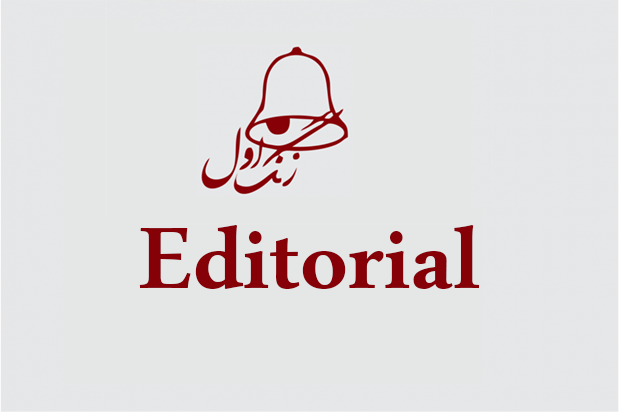The preacher of Herat Gazargah Mosque has made many poisonous statements against the regime, certain religious groups, the media, and journalists over the past three years. In June 2018, Mawlawi Mujib al-Rahman Ansari said that jihad against the media was an obligation. This extremist preacher created an institution late last year without the official permission of the government in the name of enjoining the good and forbidding evil. He, who also has irresponsible gunmen, has repeatedly spoken out against followers of a particular religious school in recent years, calling them pagans. Mawlawi Ansari openly opposed the regime last Friday. In his Friday prayer sermon, he said that the police and the army were committing a deadly sin by working in the current system. According to him, writers and religious scholars who work in support of the system also commit this sin. Ansari called on all sections of society not to cooperate with the current system, and especially for those in the army and police, to starve to death rather than work for the survival of this system. These statements are clear examples of propaganda against the system.
According to Article 55 of the Constitution, the defense of the homeland is the duty of all Afghan citizens. According to the provisions of this article, military service is the duty of citizens to defend the territorial integrity, national security, and national interests of the country. Prohibiting people from participating in the system and joining the army and police is a clear violation of this article of the constitution and a crime.
According to Article 59 of the Constitution, no person may abuse the freedoms outlined in this law, including the principle of freedom of expression, and act against the country’s independence, territorial integrity, sovereignty, and national unity. Mawlawi Mujib al-Rahman Ansari’s remarks last Friday also violate the provisions of this article of the constitution. His vulgar and poisonous remarks against the followers of a particular religious group are also contrary to the article’s emphasis on respect for the principle of national unity.
In Articles 243, 254, and 256 of the Penal Code, statements such as those of Mawlawi Mujib al-Rahman Ansari are criminalized, with punishment outlined for offenders. According to the first article, persons causing damage to the defense power of the country in a state of war with malicious statements may be sentenced to a prison term of up to ten years. The second article emphasizes that anyone who incites another to civil war should also be sentenced to prison. According to the third article, anyone who incites another to religious discrimination should be sentenced to medium-term imprisonment.
According to the provisions of these articles, inciting jihad against the media, inciting the followers of one religious school to discriminate against the followers of another school, and considering military service a deadly sin, is a crime and the perpetrator should be imprisoned according to the provisions of the Penal Code. Therefore, it is hoped that law enforcement will take immediate action to arrest this extremist and anti-regime preacher, and punish him to prevent the weakening of the army and police, religious warfare, and violence against journalists. Whenever these preachers are treated with appeasement and negligence, the country’s territorial integrity, national sovereignty and national unity are endangered.
There is no doubt that the government is tainted with corruption and is not able to provide basic services properly. However, inciting the people to stay away from the system and persuading police and army officers to resign is nothing but a conspiracy against the system as a whole. This conspiracy, if not curbed, will sooner or later cause the death of the regime and the return of the country to a new catastrophe. This is a warning that should not be underestimated.
Mawlawi Mujib al-Rahman Ansari has no authority over any other citizen of the country. Herat Gazargah Mosque should not become a platform for his abuse of religion and the principle of freedom of expression, and a place for conspiracy against the regime. He can criticize the shortcomings of the system but by law, he is not allowed to incite people to violence and discrimination and to fight against the regime. This goes against internal security and national sovereignty, and is criminalized in the Penal Code, as a result of which the perpetrator must be prosecuted.










